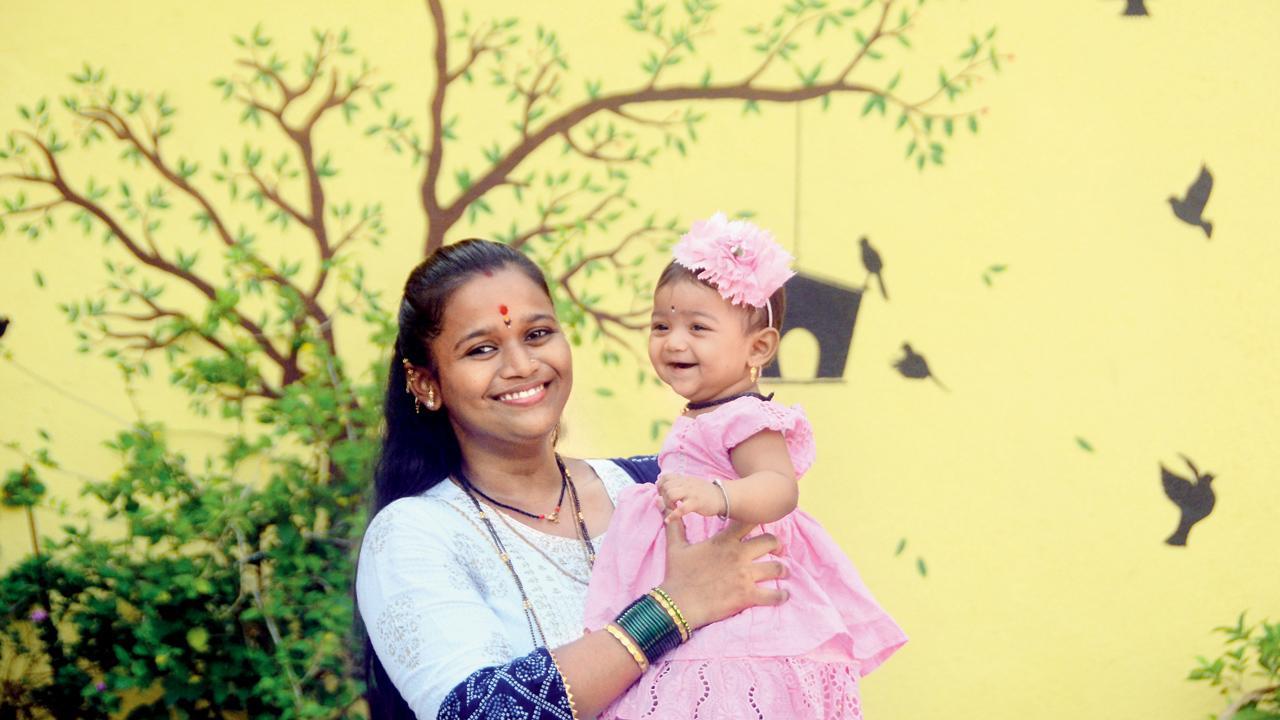Home / Sunday-mid-day / / Article /
Is there a natural miracle goli for fertility?
Updated On: 25 June, 2023 07:13 AM IST | Mumbai | Jane Borges
Key players in India’s nascent natural fertility boosters market claim they are helping women struggling with PCOS and erratic menstruation become mothers. And their research spans everything from an Ayurveda text dating back to 1st century CE to carbocyclic sugars

Diva West resident Rasika Sanjay Katre Patil, who was diagnosed with PCOS and hypothyroidism after having her firstborn, started taking ayurvedic supplements in 2021, to regulate her period cycles. Her daughter was born last year. Pic/Satej Shinde
Rachana and husband Vishal Gupta say that they discovered the “miraculous results” of Ayurveda almost a decade ago. Vishal, she says, was battling psoriasis—a skin disease that causes a rash with itchy and scaly patches, often on the knees, elbows and scalp. He has struggled with it since he was 20. After pumping money into medication that yielded very little result, Vishal, despite being a sceptic, tried Ayurveda. “He diligently consumed the herbal concoction and kadhas daily,” Rachana remembers, “The results started showing but slowly. Eventually, his skin was back to what it used to be in his teens.” That was a turning point for the Guptas.
 Gynoveda co-founders Rachana Gupta and Dr Aarati Patil at their Malad West office. One of their most selling supplement is Jeehv, an Ayurvedic formula for “timely ovulation and natural pregnancy”, which they launched in January last year. Over 3,000 women have reaped its benefit, they claimed. Pic/Anurag Ahire
Gynoveda co-founders Rachana Gupta and Dr Aarati Patil at their Malad West office. One of their most selling supplement is Jeehv, an Ayurvedic formula for “timely ovulation and natural pregnancy”, which they launched in January last year. Over 3,000 women have reaped its benefit, they claimed. Pic/Anurag Ahire



